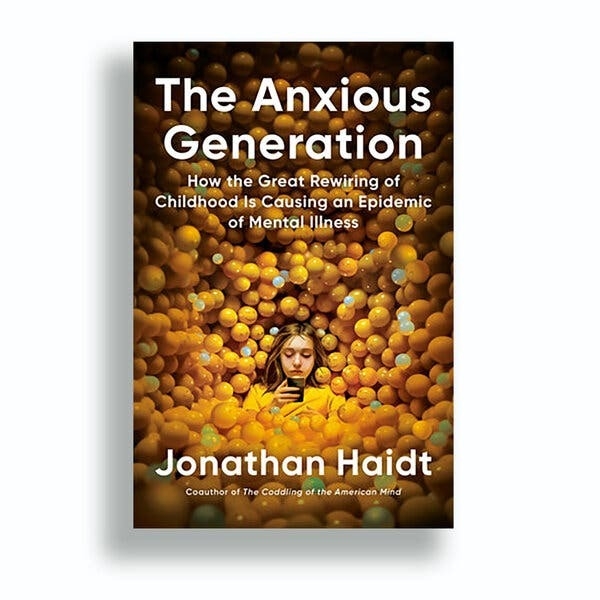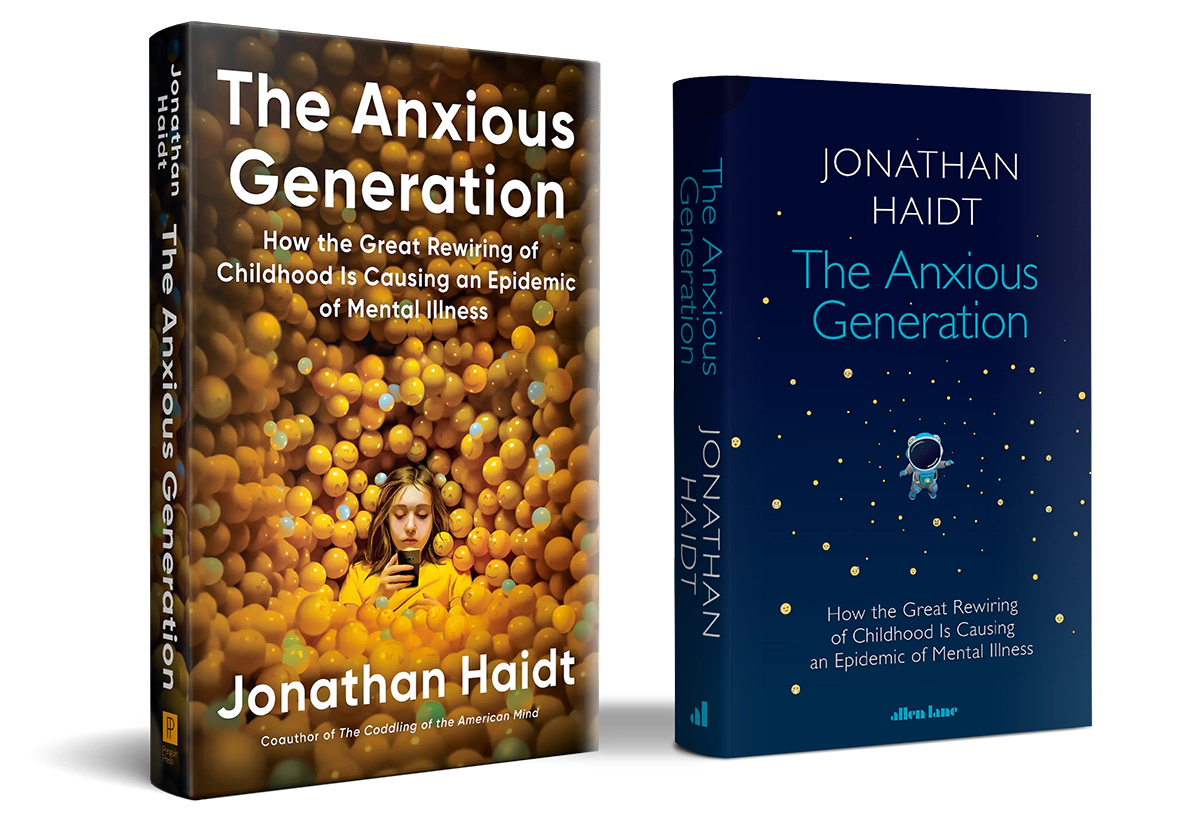This website uses cookies
This website uses cookies. For further information on how we use cookies you can read our Privacy and Cookie notice
This website uses cookies. For further information on how we use cookies you can read our Privacy and Cookie notice
In stock
Easy Return, Quick Refund.Details
QABETE ENTERPRISES
92%Seller Score
68 Followers
Shipping speed: Good
Quality Score: Excellent
Customer Rating: Good




The Anxious Generation by Jonathan Haidt investigates the sharp rise in adolescent mental health issues—such as depression, anxiety, self-harm, and suicide—that emerged globally in the early 2010s. Haidt attributes this epidemic to a “great rewiring of childhood” driven by the shift from a traditional, play-based upbringing to a phone- and social media-dominated one. This transformation has disrupted essential aspects of social and neurological development, leading to problems like sleep deprivation, attention fragmentation, addiction, loneliness, social comparison, and perfectionism.
Haidt highlights that social media impacts girls more severely, while boys increasingly retreat into virtual worlds, which harms both groups and society at large. Through extensive research and data—including revelations about tech companies’ awareness of these harms—he paints a comprehensive picture of the crisis.
Crucially, Haidt offers a clear call to action, proposing four simple rules and concrete steps for parents, educators, tech companies, schools, and governments to help restore a healthier, more balanced childhood. The book emphasizes the need to balance protection in real life with appropriate limits on digital exposure, encouraging a return to greater freedom, play, and independent exploration for children.
In summary, The Anxious Generation serves as both a diagnosis of a public health emergency and a roadmap toward reclaiming childhoods that foster resilience, social connection, and well-being.




The Anxious Generation by Jonathan Haidt investigates the sharp rise in adolescent mental health issues—such as depression, anxiety, self-harm, and suicide—that emerged globally in the early 2010s. Haidt attributes this epidemic to a “great rewiring of childhood” driven by the shift from a traditional, play-based upbringing to a phone- and social media-dominated one. This transformation has disrupted essential aspects of social and neurological development, leading to problems like sleep deprivation, attention fragmentation, addiction, loneliness, social comparison, and perfectionism.
Haidt highlights that social media impacts girls more severely, while boys increasingly retreat into virtual worlds, which harms both groups and society at large. Through extensive research and data—including revelations about tech companies’ awareness of these harms—he paints a comprehensive picture of the crisis.
Crucially, Haidt offers a clear call to action, proposing four simple rules and concrete steps for parents, educators, tech companies, schools, and governments to help restore a healthier, more balanced childhood. The book emphasizes the need to balance protection in real life with appropriate limits on digital exposure, encouraging a return to greater freedom, play, and independent exploration for children.
In summary, The Anxious Generation serves as both a diagnosis of a public health emergency and a roadmap toward reclaiming childhoods that foster resilience, social connection, and well-being.
1 BOOK

This product has no ratings yet.
/product/75/0113523/1.jpg?5129)